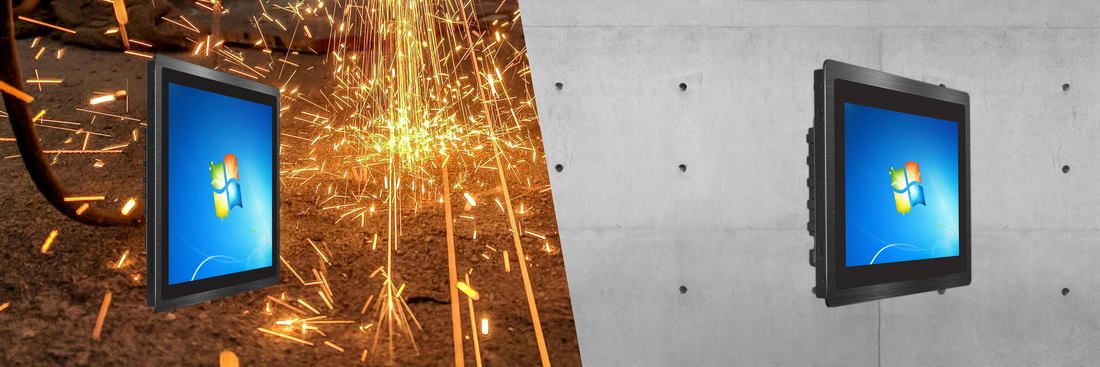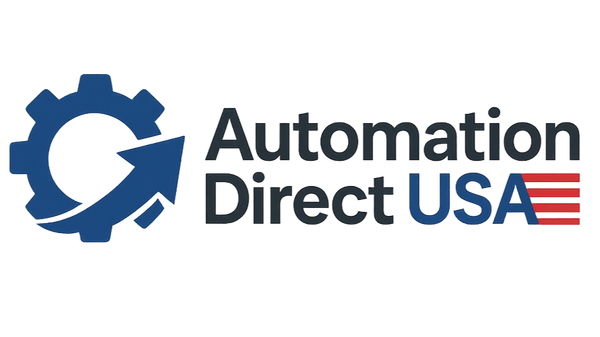
Comprehensive Guide to Choosing the Perfect Industrial Panel PC
Comprehensive Guide to Choosing the Perfect Industrial Panel PC
In today’s fast-paced industrial environments, selecting the right equipment is crucial for optimizing operational efficiency. Industrial Panel PCs, which integrate computer systems with touch screen displays, are at the core of many processes ranging from machinery control to data acquisition. This guide dives deeply into how to make informed decisions when selecting an Industrial Panel PC that aligns with your business needs.
Introduction to Industrial Panel PCs
Industrial Panel PCs are all-in-one devices designed to meet the demands of rugged industrial settings. They combine computing power with a built-in display, encased in durable enclosures often rated for dust and water resistance (IP ratings). Their robust design and performance capabilities make them indispensable in sectors such as manufacturing, transportation, logistics, and more. But what makes them unique, and how do you select the right one for your operations?
This guide will help you navigate the critical aspects of choosing an Industrial Panel PC, focusing on the most important factors such as environment suitability, performance, display, and connectivity.
What Are Industrial Panel PCs?
At their core, Industrial Panel PCs are computers built to endure harsh conditions. They typically come with IP ratings like IP65 or higher, which offer protection from elements such as dust, moisture, and temperature fluctuations. Industrial Panel PCs usually feature touch screens that range in size and type (capacitive or resistive), and their enclosures are often ruggedized to prevent damage from physical impacts, vibrations, or other industrial hazards.
They are the backbone of control systems in a variety of industries. These systems can be used in factory automation, transport logistics, medical equipment, and other environments where standard office PCs simply wouldn’t survive. Their ability to withstand these conditions without compromising performance makes them critical assets for industrial applications.
Key Factors When Choosing an Industrial Panel PC
- Environmental Conditions
One of the first considerations should be the environment where the Industrial Panel PC will be installed. Industrial environments vary significantly—from temperature extremes in outdoor installations to high moisture levels in food processing plants.
For example, if the device will be exposed to dust or water, an IP65-rated device (which offers protection from dust and low-pressure water jets) may be ideal. If the environment involves potential exposure to corrosive chemicals or extreme heat, higher levels of protection might be required. Also, the ability to function in extreme temperatures, typically ranging from -20°C to 60°C, is essential in many industrial applications.
- Performance Requirements
The performance needs of your application should guide your selection. Industrial Panel PCs are available with a wide range of processors, from low-power ARM processors used for basic monitoring tasks to powerful Intel i7 processors suitable for complex data processing or control systems.
Consider the following specs:
- Processor: ARM or x86-based systems, depending on processing needs.
- RAM: 4GB for light tasks, but for intensive operations, opt for 8GB or more.
- Storage: Solid State Drives (SSD) are preferred for their durability in harsh conditions.
- Operating System: Windows, Linux, or Android-based systems are popular, depending on software compatibility.
- Display Size and Resolution
The size and resolution of the display are critical in providing clear and detailed information. Larger displays (19-inch to 24-inch) may be necessary for viewing intricate control dashboards, while smaller screens are better suited for compact installations.
Resolution matters as well—HD or higher resolution ensures sharpness and clarity, especially when monitoring multiple parameters simultaneously. A clear display improves the accuracy and speed of operator inputs, which is crucial in time-sensitive environments.
- Touch Screen Technology
Touch screens in Industrial Panel PCs come in two main types: resistive and capacitive.
- Resistive touch screens can be operated with any object, including gloves, which is often necessary in environments like manufacturing floors. They rely on pressure, making them robust and durable.
- Capacitive touch screens offer higher touch sensitivity and support for multi-touch gestures. They are ideal for applications where precise control and high interaction speeds are required, although they may not function well when operators are wearing gloves.
Selecting the right touch technology depends on your specific use case, so carefully evaluate your working environment and operator needs.
- Mounting Options
Panel PCs are available with various mounting options. Common choices include:
- VESA Mounts: Ideal for wall mounting or attaching to articulating arms.
- Panel Mounts: Built into control panels or kiosk installations.
- Rack Mounts: Often used in server rooms or IT-heavy applications.
Ensure the mounting style suits the space constraints and accessibility needs of your operators.
- Connectivity and Expansion
Industrial Panel PCs must seamlessly integrate into existing systems. As such, connectivity is a crucial factor. Key connections include:
- USB Ports
- Ethernet (RJ-45)
- Serial Ports (RS-232/RS-485)
- Wi-Fi or Bluetooth for wireless communication
Additionally, consider expansion slots like PCI or PCIe for adding peripherals in the future. As your operations grow, your Panel PC should be flexible enough to accommodate new technologies or applications.
- Power Supply
Ensure the Panel PC you choose is compatible with your power setup. Some units come with wide-range power inputs (9V-36V DC), allowing them to operate in diverse environments without the need for additional power conditioning.
Tips for Selecting the Best Industrial Panel PC
- Define Your Application Requirements: This includes knowing the environmental conditions, performance needs, and desired display characteristics.
- Research Brands and Models: Compare features, specifications, and reviews. Look for reputable manufacturers known for durability and performance in industrial settings.
- Consult Industry Experts: Reach out to system integrators or manufacturers for advice on solutions tailored to your specific needs.
- Request Demos: If possible, test the Panel PC in the actual environment to verify its performance and reliability.
- Plan for the Future: Choose systems that can be expanded as technology evolves or your needs grow.
Frequently Asked Questions
Q1: What’s the difference between resistive and capacitive touch screens?
- Resistive touch screens are pressure-sensitive and can be operated with gloves or styluses, making them ideal for rugged environments.
- Capacitive touch screens are more sensitive and support multi-touch gestures, but may not work with gloves.
Q2: Can these devices operate in extreme temperatures?
- Yes, many are designed for extreme temperatures. Ensure you choose a device with an operating temperature range that suits your environment.
Q3: What certifications should I look for?
- Look for IP ratings for protection against dust and water, and ATEX certifications if the device will be used in explosive environments.
The Future of Industrial Panel PCs
As technology continues to evolve, the future of Industrial Panel PCs lies in their adaptability. With Industry 4.0 advancements, these devices are integrating more IoT functionalities, enhancing automation, and offering predictive maintenance capabilities through artificial intelligence (AI) and machine learning algorithms. Connectivity is also improving with the adoption of 5G, enabling faster and more reliable communication between devices on the industrial floor.
The ideal Industrial Panel PC is one that not only meets your current operational needs but can also grow and evolve with your business.
For more advanced solutions, including high-performance industrial monitors, rugged Panel PCs, and custom automation solutions, visit IMDTouch or reach out to us at support@IMDTouch.com for expert consultation.
Stay ahead of your industry’s demands with tailored solutions built to last.
